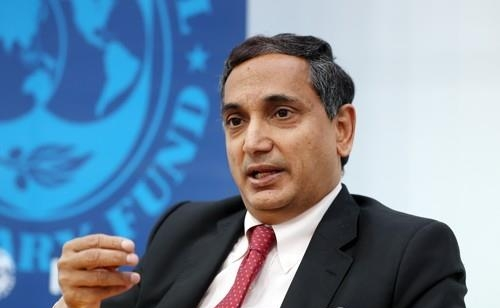The International Monetary Fund (IMF) on Friday raised concerns about rising risks to Asia’s economy, citing trade tensions, China’s property market troubles, and potential market volatility as key challenges. In its latest regional economic outlook report, the IMF projected Asia’s economic growth to reach 4.6% in 2024 and 4.4% in 2025, slightly up from previous forecasts, yet lower than the 5.0% growth in 2023.
“A longer and larger-than-expected slowdown in China would be harmful for both the region and the global economy,” the IMF stated, underscoring the critical role of China’s policy response. The IMF emphasized the need for Beijing to pivot toward demand-driven growth, calling for measures to ease the property sector’s adjustment and to strengthen consumer spending.
The IMF’s report also highlighted risks tied to escalating trade tensions, warning, “An acute risk is the escalation in tit-for-tat tariffs among major trading partners.” Such actions, according to the report, would further fragment trade relationships, impeding growth in the region.
The outlook for Asia’s manufacturing sectors presents a mixed picture as well, with stagnation in countries like Japan and South Korea but some positive momentum in China, where manufacturing activity saw slight improvement in October. However, the IMF cautioned that China’s efforts to stimulate the economy may not be sufficient to offset the effects of weakened demand in other sectors.
The IMF also noted geopolitical tensions and trade costs as persistent challenges that could “increase trade costs and jolt markets.” This, combined with tightening monetary policies and volatile global demand, places pressure on the region’s economic growth trajectory. As Krishna Srinivasan, IMF’s Asia and Pacific Department Director, noted, “At the end of the day, tariffs and trade barriers will lead to higher costs for consumers and investors alike.”
Japan faces its own pressures amid rising debt and slow economic growth. The IMF urged Japan to avoid excessive debt accumulation and to manage fiscal policy carefully as the Bank of Japan explores gradual interest rate hikes.
The IMF’s regional forecast underscores the intricate balance required to navigate Asia’s complex economic challenges, from China’s economic slowdown to Japan’s monetary adjustments and U.S.-China trade issues. With careful policy actions, the IMF suggests, Asia can work to stabilize growth amid these mounting pressures.




